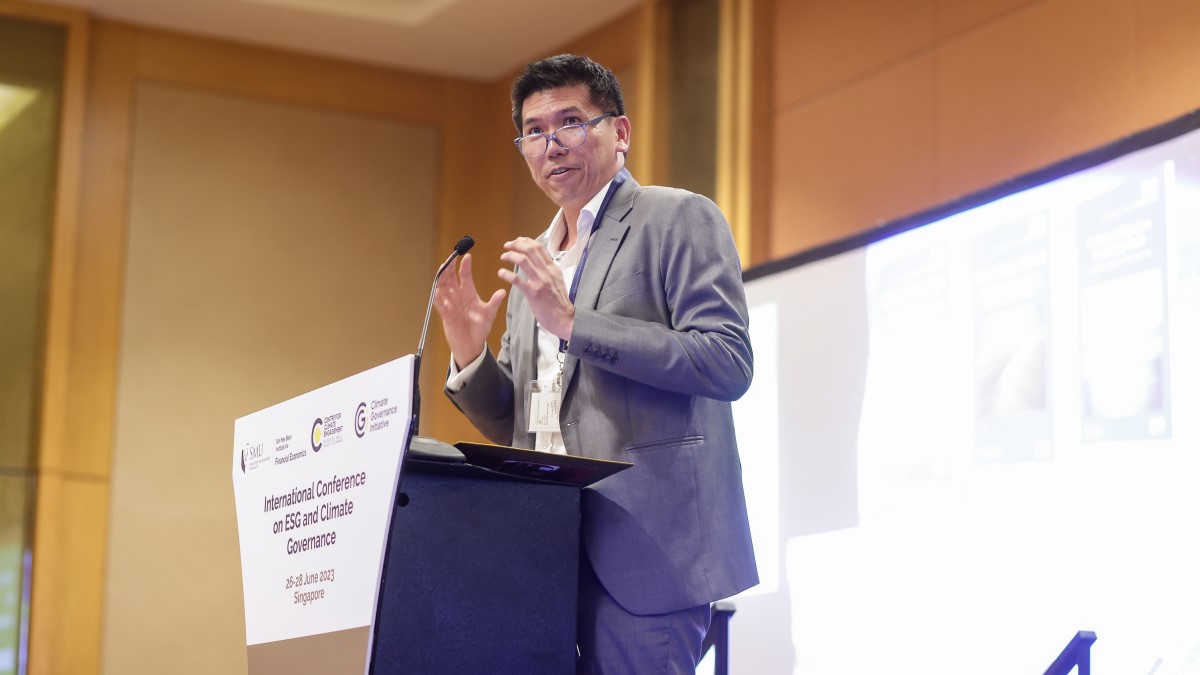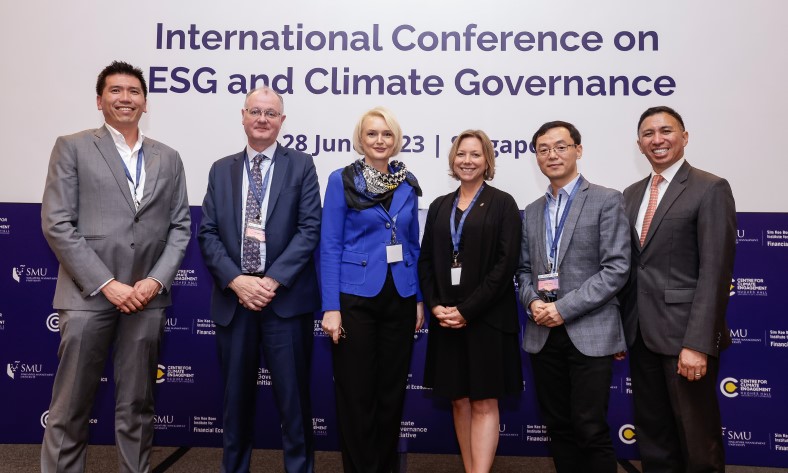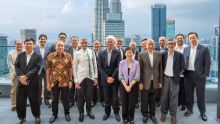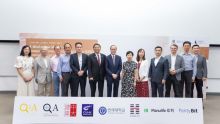
The urgent need for climate action has been repeatedly iterated, with scientists most recently warning that 2023 could be the hottest year on record. According to the World Meteorological Organisation (WMO), Antarctic sea-ice levels in June were observed to be at their lowest since satellite observations began, standing at 17 per cent below average, breaking the previous June record by a substantial margin.
This is just one of the many signs that show exactly how dire the climate crisis is, and the inaugural International Conference on ESG and Climate Governance saw academics, practitioners and directors from across the globe once again agree that there is a need to rapidly scale up board-level understanding of the real business risks and opportunities of environmental, social, and governance issues.
Held from 26 to 28 June 2023, the Conference was a global collaboration between the Centre for Climate Engagement and Climate Governance Initiative, based at Hughes Hall, University of Cambridge, and SMU’s Sim Kee Boon Institute for Financial Economics, with support from the Singapore Green Finance Centre (SGFC).
By drawing on the expertise of its attendees, the conference looked to discuss impactful and viable solutions that can be put to practice to address the theoretical and practical challenges to climate action.
Learning about opportunities in ESG and climate action
In his keynote speech for the Conference, SMU College of Integrative Studies (CIS) Associate Professor Winston Chow set the tone with a sobering account of the climate crisis.
Speaking from his perspective as someone who was heavily involved in the Intergovernmental Panel on Climate Change (IPCC), Associate Prof Chow referred to its Sixth Assessment Report, which makes it clear that the window for meaningful climate action is closing fast. Since the Conference, Associate Prof Chow has been elected as Co-Chair for Working Group II on Impacts, Adaptation and Vulnerability of the IPCC’s Seventh Assessment Report (AR7) Cycle Bureau. (See also: SMU’s Urban Climate Professor Winston Chow is the first Singaporean to be elected to the Intergovernmental Panel on Climate Change.
“If we don’t reduce our emissions significantly in the next few years, we will face catastrophic consequences,” he explained at the Conference.
“The best science assessed by the IPCC tells us that much more extreme weather is occurring – record heatwaves of high temperatures and durations, record floods and droughts. These events are causing widespread damage and displacement and cannot be as intense or frequent as they are without human influence on climate.”
Associate Prof Chow went on to say that successful climate action requires all actors in society to work towards the same direction. While there is no one solution that can be applied for all contexts, exchanging ideas, and learning about the strategies that work in various parts of the world can equip each organisation to tackle the ESG challenges in their own contexts.
“The climate roulette wheel is unforgiving, but if you are aware of the opportunities that can arise in ESG and climate action, you can hopefully take advantage of these opportunities to the benefit of your company and the community.”
The state of ESG around the world
After the conference, a summary report was published by the Centre for Climate Engagement, which presented the key findings from the three-day conference.
One of the findings apparent in the perspectives shared by academics and directors is that climate action and sustainability issues are not viewed with the same level of importance in different regions.
In Africa, climate action and sustainability issues are still not at the forefront of boardroom conversations. In fact, the overall sense is that small- and medium-sized businesses are, in fact, making more progress towards net-zero goals than larger corporations.
In the Middle East, environmental issues are still not as high on the agenda as compared to social and governance issues in the region. Hearteningly, a recent PwC survey shows that companies in the Middle East are responding with increasing vigour to the demands for a change in mindset and stronger climate action, and the number of listed companies engaging with ESG strategies in Saudi Arabia and the UAE has increased from 18 per cent to 64 per cent.
Even in other parts of the world that see more emphasis placed on climate action, not every context is the same. For example, regulations are the main driver of climate action in Europe, given that the European Union has put environmental protection at the heart of its constitution. There has also been a rise in criminal-litigation cases, such as the lawsuit laid just this past February by NGO ClientEarth against members of the board of directors at Shell UK. Though still being contested, it has impacted ESG efforts by shining a spotlight on the directors’ duty of care, not only to their shareholders, but to broader society.
While climate litigation appears to be an effective driver for boards to pay attention to climate action in Europe – it is significantly less common in Asia, where enforcement by the state is more likely.
Although the drivers and approaches to addressing climate change are not the same globally, the laws and regulations in the United States and Europe will undoubtedly affect companies in Asia and Africa due to the nature of global supply chains.
This drives home the fact that board directors worldwide need to be aware of the consequences that environmental and social issues are creating and pay attention to the opportunities to tackle this, before it is too late for society and too late for their companies.



